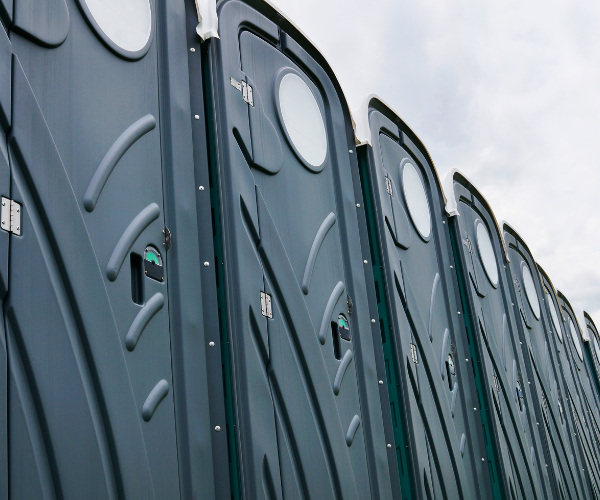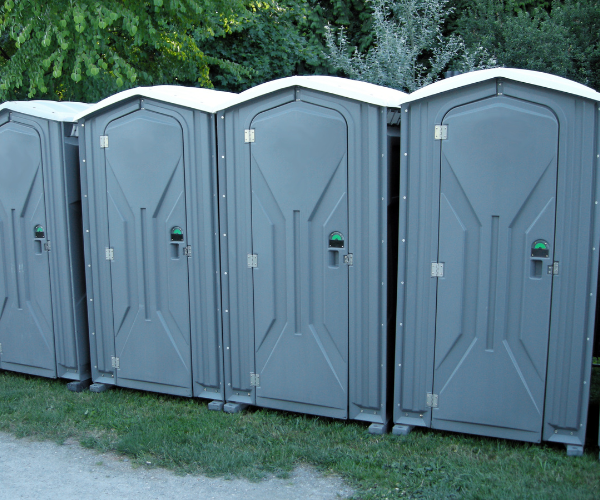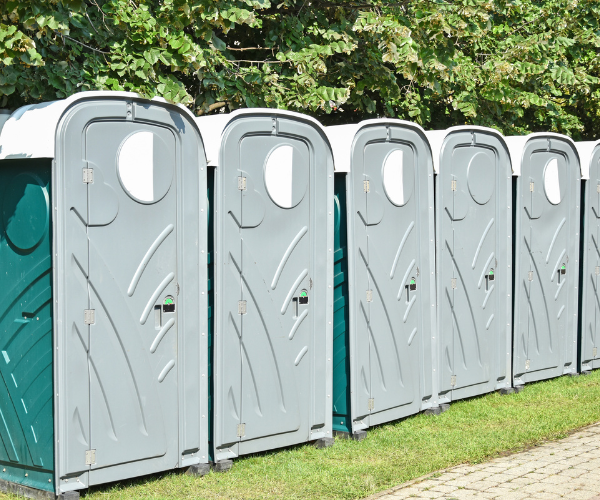Portable toilets are recognized for their eco-friendly advantages, primarily due to their minimal impact on natural resources compared to traditional plumbing systems. By utilizing a closed system, these units significantly reduce water consumption, with each use only requiring a fraction of what a traditional toilet would need. This conservation of water makes them particularly valuable in areas prone to drought or where water preservation is critical. Furthermore, modern portable toilets are designed to convert waste into non-toxic chemicals, which can be safely processed and disposed of, reducing the potential for environmental harm.Using portable toilets also alleviates stress on local sewage systems, as they often bypass septic and sewage pipelines. Instead, waste is collected and transported to appropriate treatment facilities, ensuring compliance with environmental regulations and promoting sustainable waste management practices. This approach not only preserves the surrounding ecosystem but also ensures that sanitation needs are met without compromising ecological balance.Moreover, the versatility of portable toilets extends their eco-friendly benefits beyond individual use. By positioning them strategically at events or construction sites, organizers and site managers can localize waste management efforts, decreasing the need for extensive plumbing infrastructure and associated environmental disruption. Such pragmatic applications reinforce the portable toilet as an environmentally mindful option.Lastly, the construction and operational design of portable toilets have evolved to include sustainable materials and energy-efficient features. Many modern units incorporate solar-powered fans and lighting, further reducing their carbon footprint. These sustainable features ensure portable toilet services align with broader environmental goals while maintaining essential hygiene standards, meeting societal sanitation demands responsibly.

Portable Toilet Rentals in Kerrville, Texas
Call today for a free quote (830) 465-2319
Portable Toilet
Fast, Easy, & 100% Free To Get Started
Over 20 Years Of Expertise
For over 20 years, we have firmly established ourselves in Kerrville, grounded in a dedication to quality and strong community connections. We reliably provide portable toilet solutions, always placing customer satisfaction at the forefront of our efforts.
Commitment to Excellence
Our dedication to quality service ensures each portable toilet unit is clean, reliable, and ready for any event. We go the extra mile to provide a superior experience, reflecting our commitment to client satisfaction.
Fast Delivery Guaranteed
Recognizing the urgency of your needs, we guarantee swift delivery of portable toilets, right when and where you require them. Our efficient process ensures your convenience and peace of mind with every order.
Reliable Portable Toilet Solutions in Kerrville
Call for a Free Quote Today
(830) 465-2319
In Kerrville, finding dependable, reliable, and locally owned portable toilet services has never been easier. Our company, deeply rooted in the community, proudly serves the main location and adjacent areas with top-notch sanitation solutions. Whether you're organizing a construction site, hosting a festival, or celebrating a wedding, our portable toilets are the cornerstone for events of all sizes. We stand by our commitment to quality and cleanliness, ensuring each unit is thoroughly maintained. Accredited for excellent service, our team is here to provide seamless support, making your event as flawless as possible. Discover why Kerrville trusts us for all their portable restroom needs.


Our standard porta john rental units are durable and reliable for any commercial build site, housing development, public works project, or remodel job.Features include dome lighting, grated floors, and an “In-Use” locking mechanism for privacy and comfort. Regularly maintained, inspected, and cleaned by FusionSite at your location.

Developed as an alternative to full ADA-compliant restrooms, the Liberty is a spacious, wheelchair-accessible unit that can also be promoted as a family-sized restroom. Includes a patented flat-floor system for easy wheelchair access and maneuverability.Handrails, paper holder, and rotary latch are designed for simple, intuitive end-user operation.

Portable hand washing stations are essential for keeping your work site sanitary and clean. Features hands-free foot pumps, liquid soap, and paper towels.Perfect for job sites without water hookups, these units can handle hundreds of washes between services.
We Proudly Serve
Standard Portable Toilets
Our standard portable toilets provide a reliable, clean, and accessible solution for any event size or construction site need across Texas.
High Rise Portable Toilets
Our high-rise portable toilets in Kerrville cater to the unique needs of construction sites with efficiency and high standards of sanitation.
Restroom Trailers
J Bar's restroom trailers in Kerrville offer luxury and convenience for any event, ensuring your guests enjoy premium sanitation facilities.
Roll off Dumpsters
J Bar's roll-off dumpsters in Kerrville provide a seamless waste management solution, ensuring cleanliness and environmental responsibility.
Septic Tank Cleaning
J Bar offers comprehensive septic tank cleaning services across Texas to maintain optimal performance and sanitation without hassle.
Grease Trap Cleaning
Efficient and thorough, our grease trap cleaning in Kerrville keeps commercial kitchens compliant and running smoothly with minimal disruption.
Fencing & Barricades
J Bar's fencing & barricades service provides security and delineation for events and sites across Texas, ensuring safe and organized spaces.
Residential Storage
Our residential storage solutions in Kerrville offer safe, secure, and convenient options tailored to your storage needs.
Kerrville Portable Toilet and More
Understanding the convenience of acquiring a portable toilet is essential for any event planner or site manager. The process begins easily with our quote and delivery system designed to cater to your specific needs. To initiate, simply navigate to our website where the 'Get A Quote' buttons are strategically placed for your ease. By clicking these, you'll be directed to a straightforward form, requiring only your first name, last name, phone number, and email. Once submitted, our dedicated team swiftly processes your request, ensuring you receive a timely and accurate quote.On approval, we coordinate the logistics, tailoring delivery to your schedule, ensuring each portable toilet is not only onsite but set up exactly as you need it. This seamless approach minimizes stress, allowing you to focus on the success of your event or project. Furthermore, our expert team is trained to handle any arising challenges with professionalism, assuring you quality service from start to finish. Choosing us guarantees not just a product, but a service that's attuned to your unique requirements, enhancing the overall user experience.Our commitment to efficient and effective service delivery extends beyond mere logistics. We ensure that every unit provided is cleaned to the highest standards and well-maintained, thus keeping your guests or team comfortable and satisfied. This dedication to cleanliness and dependability is a hallmark of our service, making it an indispensable part of what sets us apart in the industry. You can confidently count on us to not only meet but exceed your expectations, supporting the sanitary needs of your guests or staff comprehensively.

Kerrville is renowned for its scenic beauty, outdoor events, and a vibrant community vibe, making it an ideal place for memorable gatherings. Our portable toilets provide the perfect complement to these events by ensuring your guests have access to clean, convenient, and reliable restroom solutions. Embrace Local Charm with our portable toilet rentals that reflect the warm community essence of Kerrville, whether you're hosting guests at the Kerrville Folk Festival or enjoying the natural beauty along the Guadalupe River. Our restrooms blend seamlessly into any scene, offering unparalleled utility without distraction. Opting for our services means benefiting from a combination of local expertise and industry-leading sanitation standards, transforming necessity into a highlight. Trust us to contribute positively to the ambiance, convenience, and enjoyment of your event in beautiful Kerrville.
When searching for portable toilet providers in Kerrville, look no further. Our company is recognized for its exceptional customer care and commitment to the local community. By choosing us, you're not just getting a service; you're supporting a business that values quality, cleanliness, and community connection.Comprehensive Solutions that cater to every event's unique needs are our forte. Whether hosting a large festival or a private event, you can rely on our team to deliver on time and with professional courtesy. Our reputation in Kerrville is built on repeat customer satisfaction and community involvement, making us your trusted partner for portable sanitation needs.We offer competitive pricing without compromising on quality, ensuring that both you and your guests experience comfort and satisfaction. Let us demonstrate why our portable toilets are the top choice in Kerrville.
Swift service is central to our portable toilet rental operations in Kerrville. We streamline the process from quote to delivery, prioritizing your timeline to get units to your site when needed. Our experienced team ensures every portable toilet is perfectly placed and operationally ready at your events or construction sites with minimal fuss.Backed by years of reliable service, our expert staff understands the importance of punctuality and precision, helping you manage logistics seamlessly. Our fast delivery assurance is not just a promise but a standard practice, reflecting our dedication to serving our clients with the efficiency and quality they expect.
Kerrville Portable Toilet Insights
Renting a portable toilet in Kerrville is a straightforward process, designed to be user-friendly and efficient for all customers. To start, simply visit our website where you'll find 'Get A Quote' buttons strategically placed for easy access. Clicking these buttons initiates the process by directing you to a concise form. This form requires basic contact information such as your first name, last name, phone number, and email.Once you submit the form, our dedicated team promptly reviews the details and prepares a personalized quote that reflects your specific needs and event constraints. Whether you're hosting a small gathering or managing a large construction project, our versatile range of units can be tailored to suit various settings and requirements.After you review and approve the quote, our logistics team takes charge, ensuring that the portable toilets are delivered to your location swiftly and efficiently. We emphasize a hassle-free experience, with our staff professionally coordinating delivery times and unit placement.Throughout the rental period, our commitment to quality assurance ensures each unit is well-maintained and serviced regularly, guaranteeing a high standard of sanitation. This full-service approach extends to the pickup phase, where we efficiently manage the removal of units post-event or project completion.Leveraging our local expertise in Kerrville, we remain committed to providing reliable, top-tier portable toilet services with the convenience of seamless rental procedures and outstanding customer support every step of the way.
The typical delivery timeframe for portable toilet orders varies depending on several factors, primarily the location and specific requirements of your event or site project. However, we strive to ensure that our service is both prompt and flexible, accommodating your scheduling needs efficiently. Orders placed in advance allow us to plan accordingly and guarantee delivery at an optimal time for your convenience.For most local orders within Kerrville and surrounding areas, we aim to deliver portable toilets within 24 to 48 hours from the time of request. Our logistics team is adept at navigating unforeseen delays and supports expedited service when necessary. Whether for an unexpected event or a rapid response construction need, our infrastructure is in place to handle urgent requirements adeptly.We encourage our clients to communicate any special circumstances or alterations as early as possible to streamline the delivery process further. Our customer service representatives are on hand to address any queries or adjustments, ensuring your satisfaction with the deployment timeline.Additionally, our delivery lineup takes into account the specific unit types and configurations you select, with tailored solutions ensuring each portable toilet arrives ready for use. Understanding the critical role timing plays in event planning and site operations, our commitment to punctuality and reliability underscores every delivery we conduct.Your satisfaction is our priority, so we endeavor to uphold high standards in both delivery precision and the maintenance of our portable toilets upon arrival. We assure all our clients that their needs are met with agility and professionalism to foster seamless operational continuity.
Yes, we are fully equipped to service any type of event or construction requirements you may have. Our extensive range of services ensures that we can cater to a wide array of events including festivals, sporting events, corporate gatherings, and familial celebrations such as weddings or reunions. Each event has its specific needs and, recognizing this, we offer a broad selection of sanitary solutions tailored to enhance any occasion.Our offerings include standard porta potties and luxury restroom trailers, providing flexibility in amenities to meet different guest expectations. For construction sites, we address the unique demands through durable, reliable units that meet heavy usage requirements without compromising on sanitation quality.Additionally, to support the comprehensive equipment needs faced during these varied scenarios, we offer a host of supplementary services. These include fencing and barricade setups, portable sinks, hand sanitizer stations, roll off dumpsters, holding tanks, and ADA-compliant units, ensuring all-inclusive service solutions.Understanding the dynamics of each event or project, our team works closely with you to devise an efficient service strategy that aligns with your objectives. This customized approach guarantees that logistics are seamlessly integrated into your plans, with our team providing vigilant oversight throughout.Entrust us with your needs and experience the confidence brought by our proficient, adaptable service framework that underpins successful events and projects. This commitment reflects our mission to fortify any occasion or operation with superior customer service, quality, and reliability.

